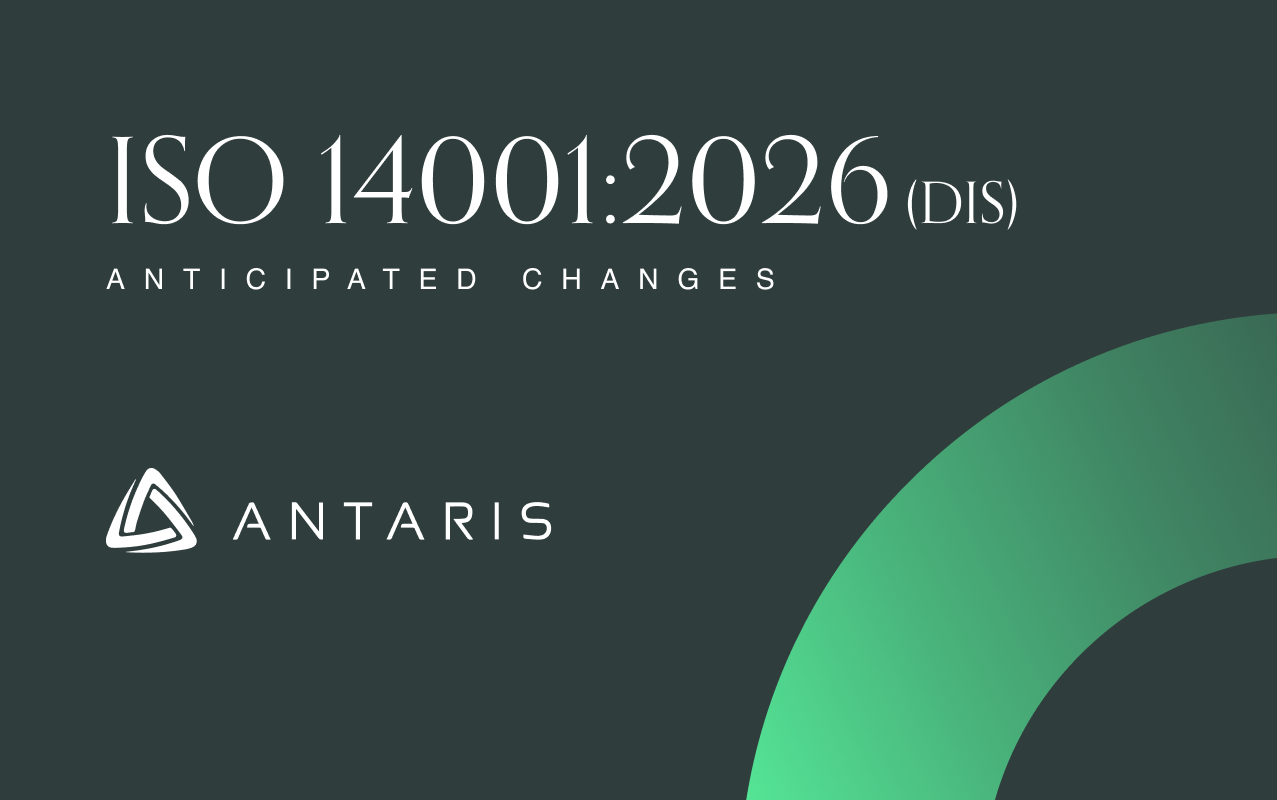Management System Standards and strategies may be successfully applied to sustainability. The concepts and processes involved provide a logical, strategic, and improvement-focused approach to sustainability. There are standards that support the UN Sustainable Development Goals. These include ISO 20400, Sustainable procurement – Guidance, ISO 45001 Occupational Health and Safety, ISO 14001 Environmental Management, ISO 22000 Food Safety, and ISO 50001 Energy Management System.
Antaris can assist you to achieve your organisation’s sustainability goals through its extensive experience in management systems, sustainability, environmental management systems, and CSR.
ISO standards may be applied to sustainability. The objective is to understand and implement the requirements of:
- the organisations own sustainability standards and objectives
- relevant stakeholders
- legal requirements
- relevant UN Sustainable Development Goals
Clause 4 of Annex SL requires an assessment of these requirements.
Clause 5 requires management to take ownership for identifying the requirements and organising the human and other resources to meet and improve performance against the related goals. A Policy and Strategy may be developed for sustainability. This involves:
- Definition of most important sustainability issues and opportunities for the organisation
- Development of a sustainability Policy
- Development of a sustainability strategy, based on the Policy
- Development of an organisational and governance structure for sustainability
Clause 6 requires an assessment of risks and opportunities associated with meeting requirements and developing actions to address them. This requires listing and assessing possible actions and projects. These may then be shortlisted to sustainability development objectives and targets for the organisation to implement in a reasonable timeframe.
Clause 7 identifies and ensures the provision of adequate resources, including physical, human, and documentation resources, training, awareness, and communication processes.
Clause 8 involves the planning and implementation of operations and operational controls, with associated KPIs for:
- Sustainable and ethical procurement practices
- Upholding equality within the organisation
- Implementing and maintaining Health and Safety and Environmental standards
- Supporting Environmental Initiatives
- Local social responsibility outreach initiatives
Clause 9 requires monitoring and reporting of performance against the organisation’s sustainability goals. This may be in an Annual Sustainability Report, outlining performance against KPIs, objectives and targets.
Clause 10 requires a process for dealing with non-conformities, for example where performance or processes have not met requirements, or objectives have not been achieved. An overall process for continual improvement in sustainability is required and is built into the overall management system.
References and definitions
CSRD: Corporate Sustainability Reporting Directive: Under Directive 2014/95/EU, large companies have to publish information related to:
- environmental matters
- social matters and treatment of employees
- respect for human rights
- anti-corruption and bribery
- diversity on company boards (in terms of age, gender, educational and professional background)
Denkstatt: Antaris European partner in Sustainability
GRI (Global Reporting Initiative and GRI Organisation) is the independent, international organization that helps businesses and other organizations take responsibility for their impacts, by providing them with the global common language to communicate those impacts.
UN Sustainable Development Goals: The 2030 Agenda for Sustainable Development include the 17 Sustainable Development Goals (SDGs). These are the basis for a programme to end poverty, improve health and education, reduce inequality, promote economic growth while tackling climate change, and working to preserve our oceans and forests.








